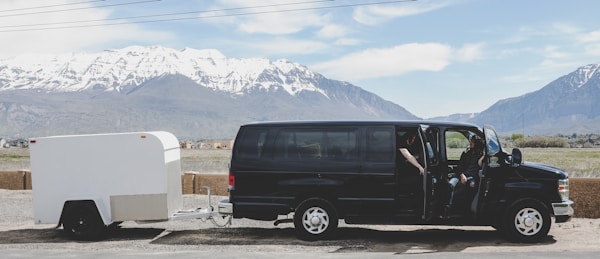Investing in a travel trailer can be a significant financial decision, and ensuring that your investment is protected is crucial. Having trailer warranty can help provide peace of mind by covering various components of your trailer and offering assistance when you need it the most. However, not all warranties are created equal, and understanding what your warranty covers and what it does not cover is essential. In this article, we will walk you through the coverage of a trailer warranty and discuss key factors to consider when comparing different warranty options.
Components Covered Under Trailer Warranty
Trailer warranty typically covers several major components, including appliances, plumbing, electrical systems, and structural elements. For instance, your warranty may cover your refrigerator, water heater, air conditioning system, and other essential appliances.
Additionally, a travel trailer warranty often covers plumbing components like your water pump, faucets, and pipes. Electrical systems like wiring, fuses, and control panels also typically fall under the coverage of your warranty. Finally, structural elements such as your trailer’s roof, walls, and floor may be included in your warranty coverage as well.
It’s important to note that the extent of coverage varies among warranty providers, so it’s crucial to read the terms carefully. Always make sure to compare different warranty options and understand the specific components each warranty covers before making a decision.
Exclusions and Limitations of Trailer Warranties

While trailer warranties can offer comprehensive coverage for many components, there are often exclusions and limitations you need to be aware of. Common exclusions in trailer warranties may include normal wear and tear on certain components, cosmetic damages, and issues arising from improper maintenance or misuse of the trailer.
Additionally, some warranties may have limitations regarding the service providers you can use for covered repairs. In some cases, you may be required to use authorized dealers or service centers, which could limit your options for repairs while on the road. It’s vital to understand the limitations and exclusions of your trailer warranty to avoid any unwelcome surprises.
Furthermore, warranties typically have a limited coverage period, which can range from one to several years. It’s essential to keep track of your warranty’s expiration date and consider whether you’ll need extended coverage for your travel trailer’s life span.
Understanding the Claims Process
The claims process for travel trailer warranties can vary depending on the provider and the specific terms of your contract. In general, you can expect to follow certain steps when filing a claim, such as contacting the warranty provider, obtaining authorization for the repair, and working with the authorized service center for the necessary repairs.
As you evaluate different warranties, it’s helpful to understand each provider’s claims process and consider factors such as the availability of customer service and the ease of accessing authorized repair facilities. The smoother the claims process, the less stress you’ll experience in the event that you need to use your policy.
Before filing a claim, ensure you have all the necessary documents and information, including your warranty contract, proof of purchase, and detailed records of your travel trailer’s maintenance history.
Costs Associated With Travel Trailer Warranties

The cost of a trailer policy can vary widely based on factors such as the coverage level, the length of the warranty, and the type and age of the travel trailer. While a more comprehensive warranty may have a higher upfront cost, it can potentially save you a significant amount of money in the long run if your trailer requires repairs or replacements of major components.
When comparing policy costs, it’s crucial to consider not only the initial purchase price but also potential deductible or co-payment amounts, as well as any charges for transferring the warranty if you decide to sell your trailer. Additionally, it’s worthwhile to explore whether the warranty provider offers any discounts or promotions to help reduce the cost of the warranty.
While the expense of a trailer plan may seem daunting, the protection it offers can ultimately provide peace of mind and financial security in the event of unexpected damages or failures.
Overall, understanding the coverage, exclusions, and limitations of a policy is critical to making an informed decision. By comparing different warranty options and considering factors such as the claims process and cost, you can choose the best protection for your investment and travel with confidence.












